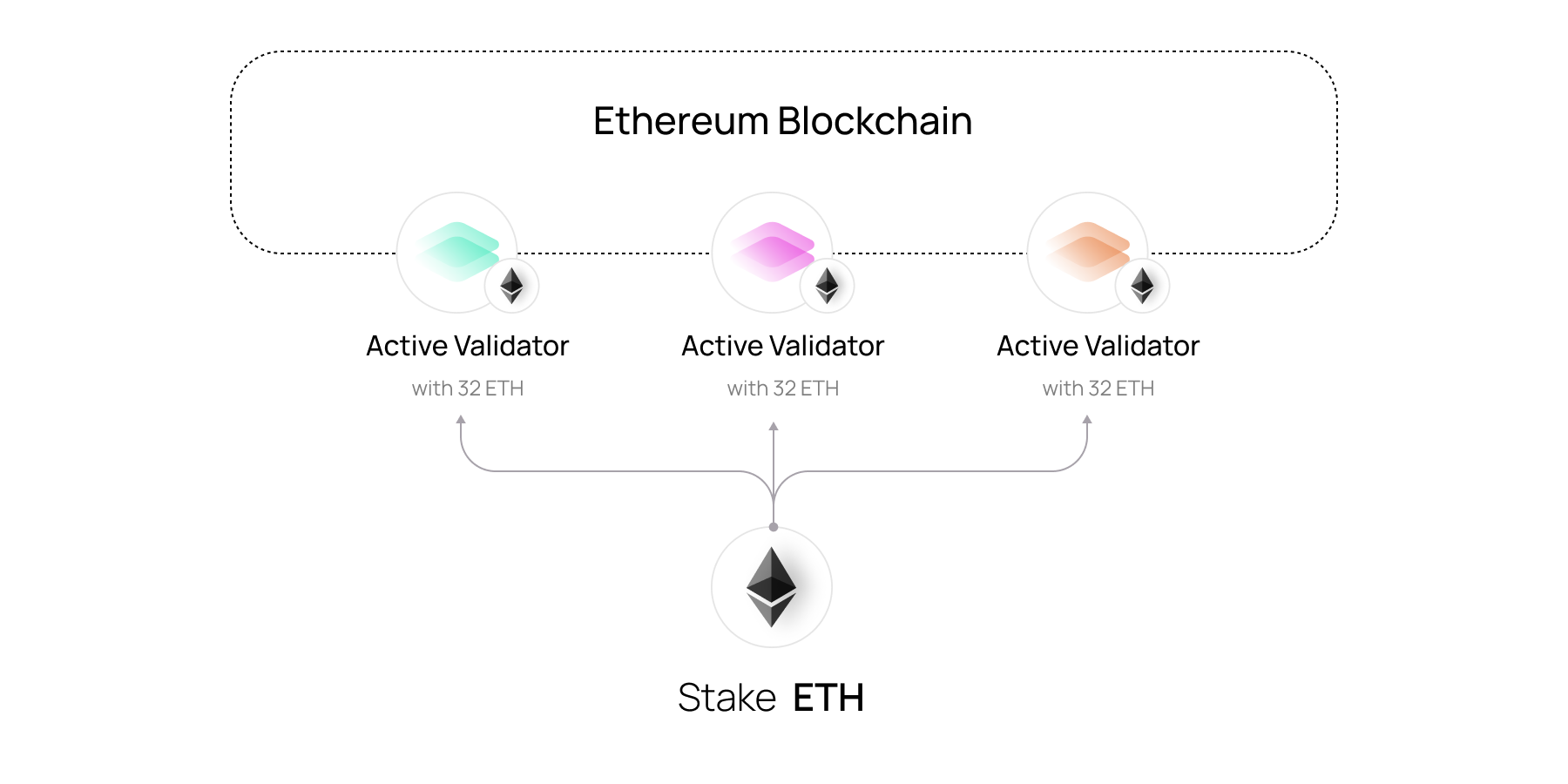
Lido is open-source software on Ethereum that makes it easier for people and organizations to stake ETH, earn rewards, and support the security of the network. Liquid staking connects individuals and institutions looking to stake their ETH (provide security to the Ethereum network and earn staking rewards) with Node Operators running the infrastructure required for staking. The Lido protocol further enables users to mint transferable liquid staking tokens that receive rewards linked to staking, unlocking other activities, including DeFi.
Staking on Ethereum involves locking 32+ ether (ETH) to secure the blockchain by running a network validator. Validators propose and validate blocks, earning rewards for performing their duties timely and correctly, or facing penalties for downtime or rule violations.
Staking can be approached in three main ways:
Solo Staking
The original, most decentralized method requires the solo staker to run their own validator node. It demands 32 ETH+ per validator, technical expertise, and ongoing maintenance. Solo stakers have full control over funds and keys and bear all operational responsibilities and risks.
Delegated Staking
Delegated staking involves delegating the staker's ETH to a third-party service provider, which is often a single Node Operator, but may be a custodial service that sub-contracts to Node Operators. This approach lowers technical barriers and reduces the minimum ETH requirement to stake. Depending on the setup, delegated staking can be custodial or non-custodial, meaning the staker may retain full control over their own funds or entrust them to the service provider. It also relies on the provider's integrity and security practices.
Liquid Staking
Staking through a liquid staking protocol like Lido is the easiest way to stake. ETH deposits receive a token representing staked ETH. Liquid staking tokens accrue rewards (and potential penalties) and can be freely transferred, used in DeFi, or redeemed for ETH, combining staking rewards with liquidity.